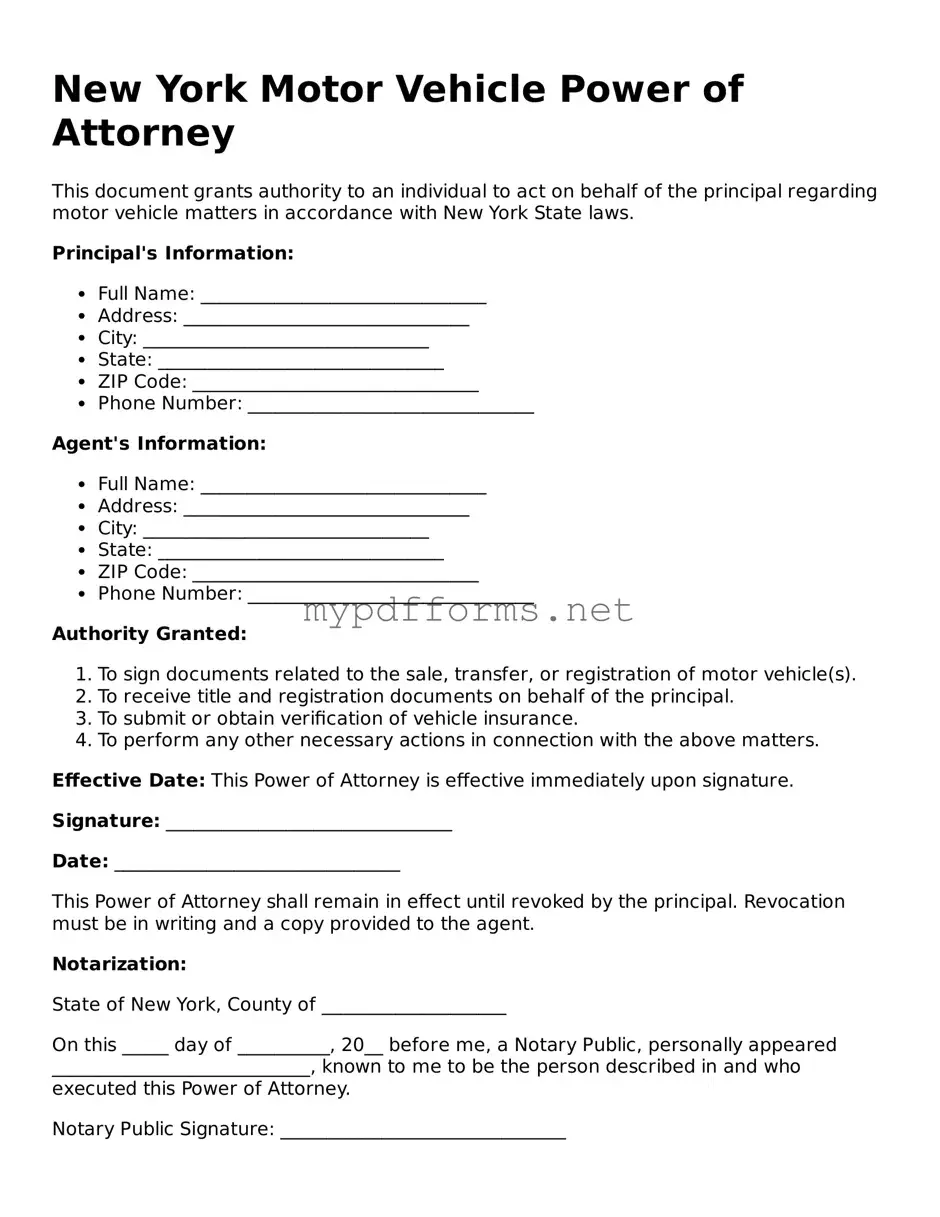Attorney-Verified Motor Vehicle Power of Attorney Document for New York
The New York Motor Vehicle Power of Attorney form is a legal document that allows an individual to appoint someone else to act on their behalf regarding motor vehicle transactions. This form is essential for those who need assistance with tasks such as title transfers, registration, or other vehicle-related matters. If you’re ready to grant someone this authority, fill out the form by clicking the button below.
Modify Document Here

Attorney-Verified Motor Vehicle Power of Attorney Document for New York
Modify Document Here

Modify Document Here
or
⇓ PDF
Need to check this off quickly?
Edit and complete Motor Vehicle Power of Attorney online in just a few steps.